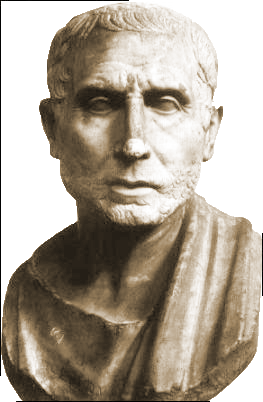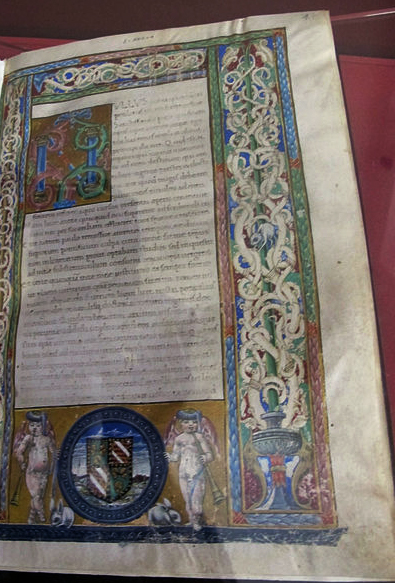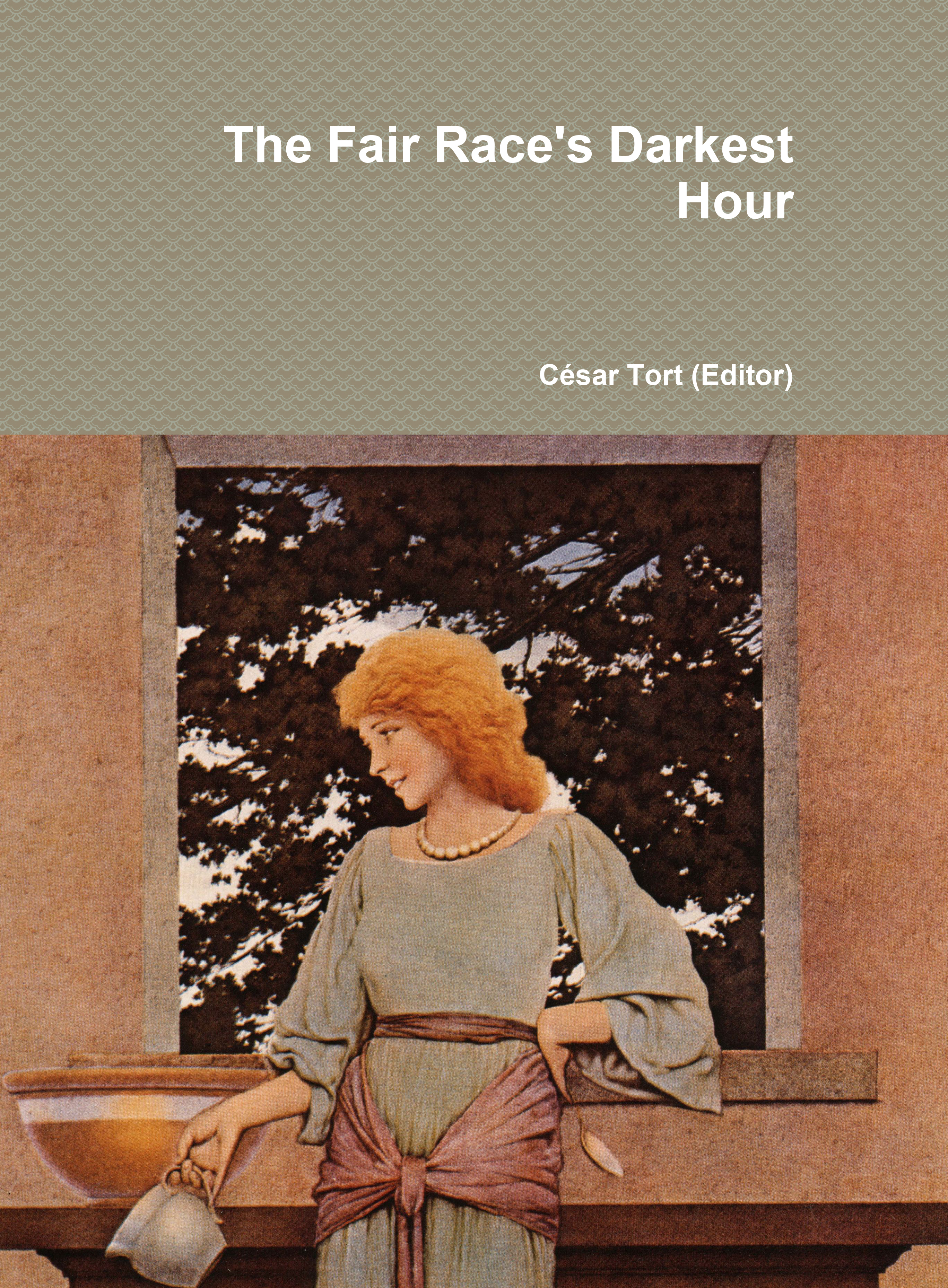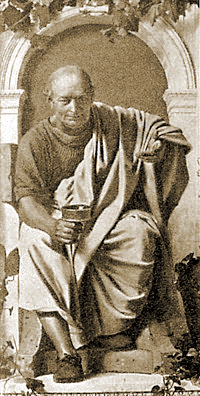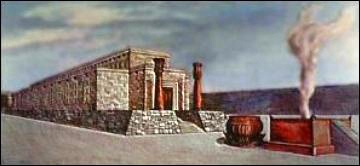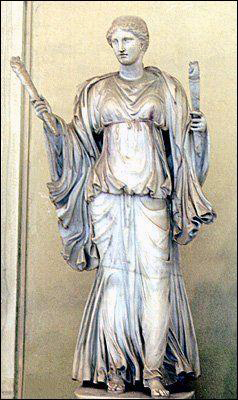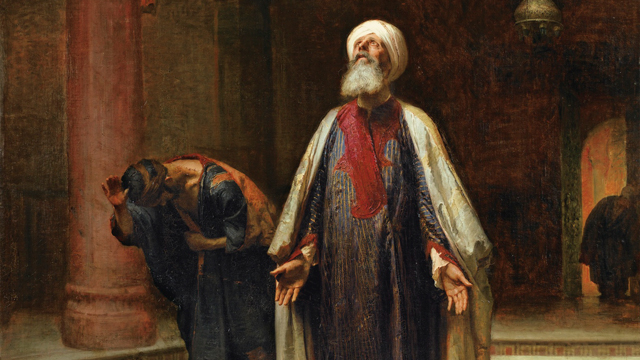by Evropa Soberana
‘When the Macedonians seized power [in Judea], King Antiochus sought to extirpate their superstitions and introduce Greek habits to transform that inferior race’.
—Tacitus, History
The Hellenistic legacy
To understand the virulent ethnic conflicts that occurred during the Roman domination, it is necessary to go back a few years and place ourselves in the era of the Macedonian domination, since the Greek social strata bequeathed from the conquest of Alexander the Great had a lot to do with the uprisings of Jewry and the long history of hatred, tensions, reprisals and counter-reprisals that followed one another thereafter.
When Alexander the Great was on his way to conquer Egypt he passed through Judea, and the Jewish community, fearful that they would destroy Jerusalem, did with the Macedonians what they used to do whenever there was a new triumphant invader: betray their former lords and welcome the invader with open arms. Thus, just as they had betrayed the Babylonians with the Persians, they betrayed the Persians with the Macedonians. Grateful, Alexander granted them extensive privileges; for example, in Alexandria they were legally equated with the Greek population.
This point is important, because the legal status of the Alexandrian Jews—who would constitute almost half of the city’s population—later led to bitter misgivings on the part of the Greek community, leading to riots, which we will see later.
When Alexander the Great died in the year 323 BCE, he left a vast legacy. The whole area he had dominated, from Egypt to Afghanistan, received a strong Hellenisation which produced the period called Hellenistic, to differentiate it from the classical Hellenic. The Macedonian generals, the so-called Diadochi, foolishly fought among themselves to establish their own empires, and in this case we will be interested in the empire of the Ptolemies (centered in Egypt) and that of the Seleucids (centered in Syria) because Israel, between both, would become part of the first and finally, in 198 BCE, annexed by the Seleucids.
Under the umbrella of Alexandrian protection, the Jews were spread not only in Palestine and the Near East, but throughout Rome, Greece and North Africa. In these areas already existed well-organized, rich and powerful Jewish Qahals, all of them connected to Judea, the nucleus of Judaism. In Jewish society, some social sectors would absorb the Hellenisation which, with the fermentation of the centuries, produced a cosmopolitan breeding ground that would lead to the birth of Christianity. Other Jewish sectors, the most multitudinous, clung to their traditional xenophobia and began to react against those who, in the lead of Alexander the Great, had received them as saviours.
Although the Near East was a hotbed of Egyptians, Syrians (also called Chaldeans or Arameans, whose language was lingua franca in the area, being spoken regularly by the Jews), Arabs and others, the traditionalist Jews saw with great displeasure that Asia Minor and Alexandria were filling up with Greeks who, naturally, were pagans and, therefore, in Jewish thought, infidels: ungodly and idolatrous, as had been the hated Egyptians, Babylonians and Persians before them.
With time, to the discomfort of these sectors of the Jewish quarter adverse to assimilate into the Greek culture, a series of measures decreed by Antiochus IV Epiphanes, the Seleucid king, were added. In December of the year 168 BCE, Antiochus literally forbade Judaism, attempting to extirpate the cult of Yahweh, suppressing any Jewish religious manifestation, placing circumcision outside the law and even forcing Jews to eat foods considered religiously ‘unclean’.
The Greeks imposed an edict by which an altar to the Greek gods should be built in every city in the area, and Macedonian officials would be distributed to ensure that in every Jewish family the Greek gods were worshiped. Here, the Macedonians demonstrated elemental clumsiness as they did not know the Jewish people. According to the Old Testament (2 Maccabees and 4 Maccabees), those who remained faithful to the Mosaic Law, Antiochus had them burned alive and the Orthodox Jews who escaped to the desert were persecuted and massacred. These statements should be taken with caution, but what is clear is that there was anti-Jewish repression in general.
What were these measures? We must bear in mind that the pagan world was a world of religious tolerance, in which religions were not persecuted just like that. However, in Judaism, the Greek sovereigns saw a political doctrine that potentially could turn the subversive Jews against the pagan states that dominated them. They were hostile towards the other peoples of the planet, and therefore, a threat. In this context, it is possible that the first manifestations of religious intransigence came from the Jewish side among other things because, as I said, the ancient pagan Greeks were never religiously intransigent or intolerant. Such intransigence was not funny for the Macedonians, who considered their gods symbols of their own people.
The fact is that in that year, 168 BCE, Antiochus sacrificed nothing more and nothing less than a pig on the altar of the temple of Jerusalem, in homage to Zeus. This act was considered a double desecration: On the one hand because it was a pig (a profane animal of Semitic creeds like Judaism and Islam), and on the other because that was the first step of consecrating the entire temple to the Olympian Zeus and to convert Jerusalem into a Greek city.
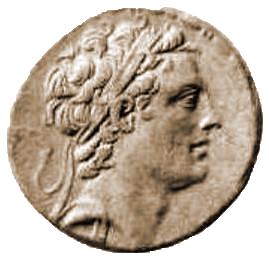
Antiochus IV Epiphanes, Seleucid king and descendant of Seleucus I Nicator, perhaps the most brilliant of the generals of Alexander the Great. According to Jewish tradition, this Macedonian king, by desecrating the altar of the temple in Jerusalem and sprinkling it with pig’s blood, was possessed by a demon: the same who will possess the anti-Messiah or the ‘coming prince’ spoken of in the Old Testament (Daniel, 9:26).
This sacrilegious act brought a strong reaction from the fundamentalist sectors of the Jewish quarter. The most zealous rabbis began to preach a kind of holy war against the Greek occupation, urging the Jews to rebel, and when the first Jew timidly decided to make an offering to the Greek Zeus, a rabbi, Mattathias Maccabeus, murdered him.
The ethnic turmoil that followed led to the period known as the Maccabean wars (years 167-141 BCE), of which there is much talk in the Old Testament (Maccabees). Carrying out, with the Hassidim (the ‘pious Jews’, also called Chassidim or Chassidic) a guerrilla war against the Macedonian troops surrounded on all sides, the ‘Maccabees’ were finally spared from being overwhelmed when an anti-Greek rebellion broke out in Antioch, and crushed the influence of the Hellenizing Jews.
Judas Maccabeus, who succeeded Mattathias renewing the cycle of treason, would even negotiate with the Romans to secure their support. In fact, the Roman Senate would formally recognize the Hasmonean dynasty in 139 BCE, without suspecting the headaches that this remote land would give them in the near future.
During this time, in addition to the Hellenised Jews, two other important Jewish factions would be formed, also in bitter dispute: on the one hand, the Pharisees, a fundamentalist sector that had the support of the multitudes; and on the other, the Sadducees, a group of priests more ‘progressive’, more ‘bourgeois’, in better dealings with the Greeks and who in the future would be victims of the ‘cultural revolution’ that the Pharisees carried out after the fall of Jewry in the hands of Rome.
Their writings would be destroyed by the Romans, so the vision we have today of the panorama is the point of view of the Pharisees, from whom would come the lineages of orthodox rabbis who would complete the Talmud. The Hasmonean dynasty, in spite of numerous swings and changes, would be essentially pro-Sadduceean.
I will speak in a low voice, just so as to let the judges hear me. For men are not wanting who would be glad to excite that people against me and against every eminent man; and I will not assist them and enable them to do so more easily. As gold, under pretence of being given to the Jews, was accustomed every year to be exported out of Italy and all the provinces to Jerusalem, Flaccus issued an edict establishing a law that…

